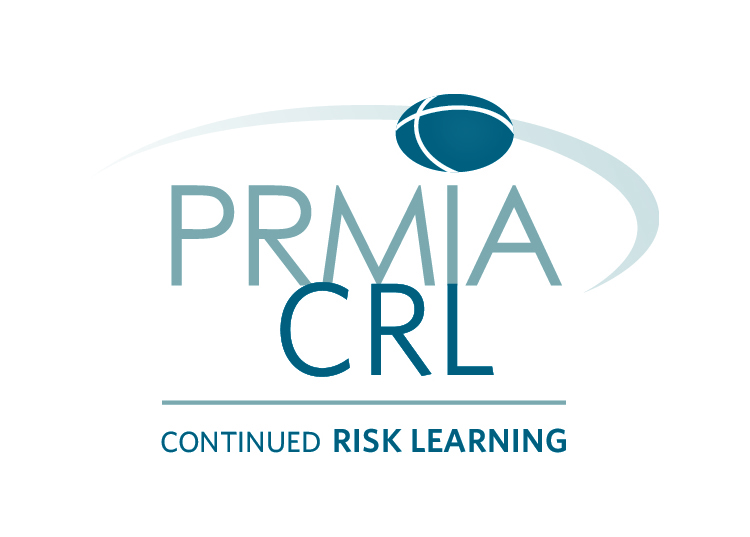Certificate of Practice in ESG and Climate Risk Management

Are you prepared to tackle the unique challenges that come with Climate and ESG risk management and portfolio decarbonization? Get ready to dig into the climate and ESG risk discipline, expand your knowledge, and learn how to deal with climate and ESG risks in an efficient and effective manner when you join us in our dedicated live online course.
 Date:
Date:
Three
live virtual 1/2-day sessions, plus assessment
April 9,10,11, 2024
Team assessments:
April 17, 2024
 Time:
Time:
9:00 a.m. - 12:30 p.m. EST
2:00 - 5:30 p.m. GMT
(one 15-minute break)
 Presented By:
Presented By:
Peter Plochan, GLOBAL PRMIA RISK TRAINER
 Session Length:
Session Length:
Three 1/2-days of training |
Live Training via Zoom
One 1/2-day of team assessment presentations
Team meetings as determined by participants
| About This Course |
|
|
The attention to climate change and climate and ESG risks gained significant momentum and managed to climb up the agendas of leading global policymakers, regulators, corporates, and financial institutions. Banks, insurers, and investors are already feeling the first climate change losses in their portfolios and are struggling to keep up the pace with the intensity of the developments of climate and ESG related regulatory and disclosure requirements. In parallel, the financial industry is gearing up for yet another climate related significant task – the decarbonization of their portfolios – in order to reach carbon net-zero portfolio carbon emissions by 2050. Climate and ESG risks are a source of financial risks. They require special considerations, and if they are to be managed effectively and efficiently, they need to be addressed in close integration with a bank’s business as usual activities.
The course starts with an introduction into climate change and ESG covering the key facts, expected future developments and impacts, and then explores the main relevant global initiatives. The course further covers the specifics of climate and ESG risk management compared to business as usual (BAU) risk management and reviews the key elements of the applicable regulatory and disclosure developments. Participants will take a deep dive into climate physical risk and climate transition risk measurement with concrete data, methodology, and quantitative climate risk metrics examples. This is then extended to evaluation of the differences between business as usual and climate-specific, forward-looking processes such as “vanilla” stress testing vs, climate stress testing or portfolio decarbonization scenario analysis. The course concludes with exploration of alternative approaches to climate and ESG risk management, setting of strategy, portfolio steering, and their connection to decarbonization and green finance opportunities.
Participants will be assigned to groups to complete the final assignment, the purpose of which is to demonstrate the application of what was learned in the course. Each group will be required to successfully complete the assessment and present a solution.
Key Objectives and Learning Outcomes
After the course, participants will be able to:
- Advise on the key drivers behind climate and ESG risks and decarbonization, their potential impacts on financial institutions, and key elements of the respective regulations and international collaboration initiatives.
- Analyze the different assessment methodologies and available data for transition and physical risk on portfolio, regional, sector, and counterparty level.
- Evaluate the differences between business as usual and climate-specific, forward-looking processes such as “vanilla” stress testing vs. climate stress testing or decarbonization scenario analysis.
- Interpret the implication of climate and ESG disclosures, carbon footprint, and decarbonization on risk management and portfolio / balance sheet steering and strategy.
- Perform a climate risk assessment leveraging the publicly available climate and ESG data sources, impact assessment tools, and best practices.
|
| Participant Course Requirements |
- Attendance at every Zoom session for the full session is required. If a participant is absent one or more hours of the course, completion of a homework assignment will be required.
- Participation verbally and/or via chat is required. This participation can be in the form of questions, comments, meaningful contributions, etc. Attendees who are not actively participating will be called upon.
- Fully contribute and present as a team member on the final assessment assignment. Presentations will be up to 20 minutes each. Teams can meet on their own time to work on their assessment. Teams will be assigned based on participants' time zones (up to 5 people per team).
Your instructor, Peter Plochan, will be available for one hour after days 2 and 3 of training. Teams can schedule up to 15 minutes with Peter to answer questions and offer guidance with the assessment.
After each presentation, your instructor will provide feedback.
Certificates will be issued to those who have met all the requirements of the course. Certificates may take up to two weeks to issue.
|
|
| Agenda |
| Date |
|
Topic |
Tuesday,
April 9 |
|
Introduction to Climate Change and ESG
- Introduction to Climate Change and ESG
- International Initiatives and Perspectives
- Introduction to Climate Risk
|
|
Wednesday,
April 10
|
|
Regulations and Risk Types
- Climate Risk Management and Regulations
- Climate Risk Data and Assessment: Physical Risk
- Climate Risk Data and Assessment: Transition Risk
|
Thursday,
April 11 |
|
Simulations, Reporting, and Strategy
- Climate Risk Reporting and Disclosures
- Climate Scenario Analysis and Stress Testing
- Climate, ESG, and Net-Zero Strategy
|
Wednesday,
April 17 |
|
Assessment Presentation
Presentation time, 20 minutes per team
- Teams of up to 5 present components of a qualitative and quantitative summary of key climate risks and opportunities; a green finance policy; and gap analysis for an institution to the instructor.
- Instructions and requirements will be defined before the course. Modalities of the work along with evaluation criteria will be communicated at the beginning of the course to all participants.
|
- Enterprise Risk / Strategic Risk Management / Integrated Risk Management
- Stress testing / Strategy and business planning
- Risk Modeling
- Portfolio management
- Credit / Market Risk Management
- Operational / Reputational / Business Risk Management
- Risk / Finance controlling
- Finance / Budgeting
- Regulatory Reporting / Compliance
- Risk Management consultants
- Auditors
- Regulators
| About Our Expert |
|
|
|
 |
|
Peter Plochan assists institutions in dealing with their challenges around climate risk, finance and risk regulations, enterprise risk management, and risk analytics. Peter has a finance background (Master’s degree in Banking) and is a certified Financial Risk Manager with over 17 years of experience in risk management in the financial sector. Peter also delivers risk management training for PRMIA covering stress testing, ERM, model risk and climate risk management. |
| Continued Risk Learning Credits: 14 |
 PRMIA Continued Risk Learning (CRL) programs provide you with the opportunity to formally recognize your professional development, documenting your evolution as a risk professional. Employers can see that you are not static, making you a highly valued, dynamic, and desirable employee. The CRL program is open to all Contributing, Sustaining, and Risk Leader members, providing a convenient and easily accessible way to submit, manage, track and document your activities online through the PRMIA CRL Center. To request CRL credits, please email [email protected].
PRMIA Continued Risk Learning (CRL) programs provide you with the opportunity to formally recognize your professional development, documenting your evolution as a risk professional. Employers can see that you are not static, making you a highly valued, dynamic, and desirable employee. The CRL program is open to all Contributing, Sustaining, and Risk Leader members, providing a convenient and easily accessible way to submit, manage, track and document your activities online through the PRMIA CRL Center. To request CRL credits, please email [email protected].
"The course itself was excellent, and the knowledge Peter shared was invaluable and succinctly and engagingly presented."
"Peter was outstanding as were the team presentations."
"Overall, the program was terrific and I feel fortunate to have participated."
| Registration |
| Membership Type |
Price |
| Sustaining, Corporate and RIM Members |
US $1,170.00 |
| Contributing Members |
US $1,295.00 |
| Non-members |
US $1,395.00 |
|
Registration closes Monday, April 8 at 12:00 p.m. CT.
Last Chance Offer - Use code EB9119 for $150 off!
|
|
| Membership pays for itself! Become a Sustaining member and pay the Member price for this training. |
|
| |
|
If this is your first time accessing the PRMIA website you will need to create a short user profile to register. Save on registration by becoming a member.